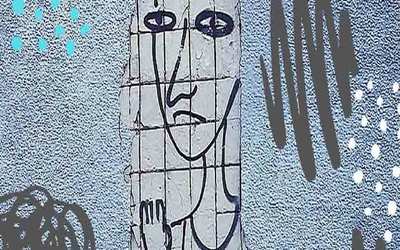The word “Anxiety” evokes so many emotions at one go that is probably impossible to explain. For some it’s the cliched feeling of nervousness, palpitations, excessive worrying, feeling keyed up whenever around a triggering agent; but for some, it’s a lifestyle.
[the_ad id=”11297″]
It’s as if they sleep, eat, work, exercise and live with it. Also, it’s worse but anxiety is contagious hence they end up giving it to their near and dear ones. An extreme form of anxiety is characterized as a disorder. There are various kinds of anxiety disorders like social anxiety disorder, separation anxiety disorder, generalized anxiety disorder, Panic disorder, OCD (Obsessive Compulsive Disorder), PTSD (Post-traumatic stress disorder), Agoraphobia and other specific phobias.
Constant rumination, feeling off the edge, a restlessness of not able to help the situation, trouble concentrating or thinking about anything other than the worry, insomnia, guilt, palpitations . Sadness is a constant emotion but what underlines that emotion is Anxiety: An anticipation as to what will happen in the future.
The major symptoms being
- restlessness
- having a sense of danger or panic
- increased heart rate
- sweating, trembling
- lack of concentration
- trouble sleeping
- fatigue, etc.
That is how it feels every day. Some people are good with dealing it who has better coping mechanisms and internal locus of control, while some who have an external locus of control tends to seek validation from outside. Constant reassurances are what helps them as it compensates with the inner voice which is not very strong in them. Interpreting the threat and danger of doing something is how they like to shape their lives. Overestimating, generalization, filtering the odds and evens come naturally to people having anxiety. This not only affects the personal life but every other domain be it occupational, relationship, social and general mental well-being. In such cases, seeking help from a therapist is advisable but due to lack of acceptance, it becomes difficult.
On the relationship aspect, trusting someone after going through so much was pretty difficult. Over-analyzing every fight, finding potential threats to the relationship, requiring constant reassurances, assuming and making a flow chart in the head as to what might have gone wrong if exposed to something challenging, developing cognitive distortions like:
- Jumping to a conclusion: Being persuaded of something with slight to no evidence to support it
- Polarized thinking: Black and white thinking i.e. not seeing the grey.
- Personalization: Believing that you are at least moderately responsible for everything bad that happens around you.
- Blaming: Pointing to others when looking for a cause of any undesirable event, instead of observing yourself.
- Shoulds: Holding tight to your rules on how people ought to behave
- Emotional reasoning: Believing “If I feel it, it must be true!”
- Catastrophizing: Assuming the worst-case scenario, magnifying the negative and minimizing the positive
Anxiety just tests you whether you are living your present moments or not. If something that is happening on the outside is controlling how you are from inside then it’s because you are giving that authority to it. You fear taking charge. Anxiety brings umpteen amounts of negative emotions with it being the root that we often fail to identify. You have trauma, anxiety triggers you. You have depression, anxiety intensifies it. You have OCD, anxiety compels you. Likewise, we need to recognize this foreign particle and not train ourselves to live with it. It will help us live a free life with no emotional burden and then one can feel the true sense of an emotion without it being associated with anxiety.
To practice this, taking little steps as to practice gratitude, meditation, mindfulness, grounding techniques, relaxation techniques, breathing exercises and positive self-talk acts as healing agents. Imagine yourself having lost your main hand and doing things with the opposite hand; seems impossible right? But if it’s for your good then eating with the opposite hand is far better than not feeding yourself. You are not going to master the rest of your life in one day. Go through each day first by accepting how you feel. In case you feel you can’t help yourself go meet a psychologist. Accept your symptoms without hesitation. If you think walking up to a psychologist or psychiatrist is tough, then take online counselling for it. That is what is called empowerment. Feeling the need to help yourself. Nowadays there are a lot of online therapist and psychologists who help people dealing with anxiety come out of it. Severe cases do have to take up anxiety medication for the brain to release helpful hormones. With that lots of psychometric tests and tools are also available. The first step being meeting either a clinical psychologist or a counselor or a psychiatrist.
I think it’s during the darkest moments that we must focus to see the light. The light from within that we fail to acknowledge. One has to keep reminding themselves that being afraid of things going wrong isn’t the way to make things go right.
Source:

